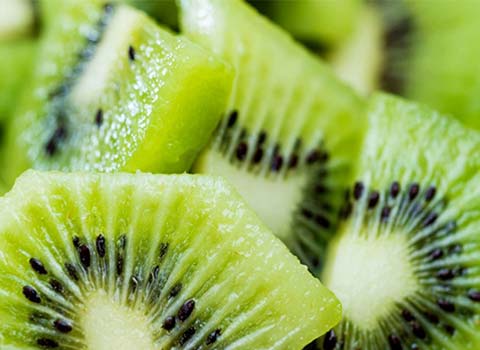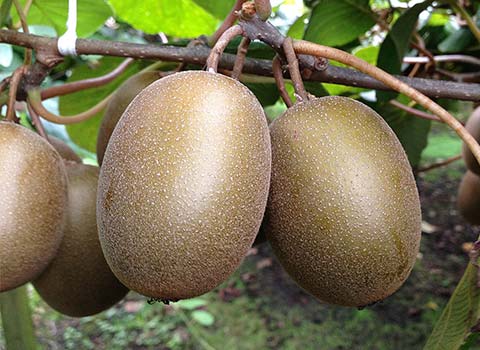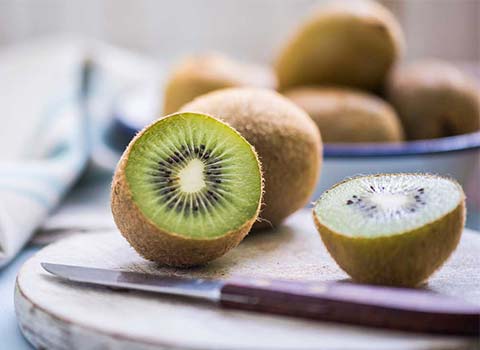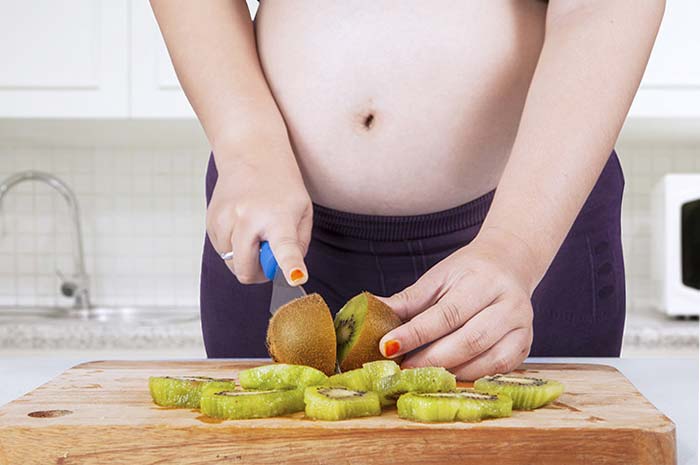- September 11, 2021
- Pourya Jamei
Pregnancy is an exciting and special time. There are a lot of things that you as a parent must prepare for the little one on the way. There are clothes to buy, a baby room to prepare and stuff with toys, and the list goes on. But if you put all your focus on preparing stuff for the baby, how can you find the energy to read and gather information available to expectant mothers?
We in Sepcotrading gathered some information about kiwi fruit and the benefits of eating kiwi fruit during pregnancy to help you.
Share:
Benefits of eating kiwi in the first, second, and third trimesters
Here we divided benefits of eating kiwi during pregnancy for every trimester:
Eating kiwi in the first trimester
Eating kiwi fruit during the first trimester of pregnancy is important because of the following nutrients:
- Vitamin C
- Folic Acid
- Calcium
Vitamin C
Kiwi is actually a huge source of Vitamin C. A single kiwi has 64 milligrams of Vitamin C. Vitamin C is good for the mother because it helps with the absorption of iron.
Iron absorption is very important to prevent anemia during and after pregnancy. Ensuring high iron levels are also helpful for the baby. Iron helps form neurotransmitters that are important for good brain function, so keep that in mind to eat at least one kiwi every day during your first trimester of pregnancy.
Folic Acid
The average amount of folic acid in kiwi is about 17 micrograms, which makes kiwi a great source of folic acid to add to your diet and eat during pregnancy.
Researchers are not exactly sure how it works, but folic acid is important in preventing neural tube defects (NTS) in your baby. NTDs occur early, 4 to 6 weeks after your last period, so it is important to take supplements one month before trying for pregnancy.
The Centers for Disease Control and Prevention recommend consuming 400 micrograms of folic acid daily, but adding one or two kiwis is definitely helpful too.
Calcium
Calcium is important for the health of the bones and teeth of the mother and the baby. But not just that. Your baby needs enough calcium to keep his muscles and heart growing. An average kiwi contains 23.5 mg of Calcium, so include the kiwi in your salad – especially if you are lactose intolerant and looking for non-dairy sources of calcium.
Eating kiwi in the second trimester
Eating kiwi during the second trimester can be helpful because of the following nutrients that it has:
- Dietary Fiber
- Vitamin A
Dietary fiber
With 2.07 grams of fiber per kiwi, this fruit can help you maintain the smooth bowel movements you almost forgot. Pregnancy can actually cause a wide range of intestinal problems, from constipation to diarrhea. This is because higher levels of hormones slow down digestion and relax your gut muscles.
Vitamin A and Zinc
From the second trimester of pregnancy, your need for vitamin A, zinc, calcium, iron, iodine and omega-3 fatty acids increases. By eating kiwi during pregnancy, you’ll provide enough of these nutrients for your body. The average kiwi contains 2.76 micrograms of a valid source of vitamin A and 0.097 milligrams of zinc.
Eating kiwi in the third trimester
Every single trimester during pregnancy needs its special nutrients, and the third trimester is not an exception. Eating kiwi during the third trimester of pregnancy provides the following nutrients:
- Sugar Content
- Vitamin K
Sugar content
You may hear about gestational diabetes during this trimester. Kiwi has a lower blood sugar index than many other fruits, and 100 grams of kiwi has only about 1 teaspoon of glucose. This means that this fruit does not raise your blood sugar. But it may be so sweet that it stops the craving for sweets.
Vitamin K
On average, kiwi contains a reliable source of 27.8 micrograms of vitamin K. This vitamin promotes healing and helps your blood to clot. As you approach the due date, you need to make sure your body has enough of this vitamin.

Side effects of kiwi fruit for pregnant
Is eating kiwi safe during pregnancy? Although it’s rare to happen, one might develop an allergic reaction to kiwi or may consume it too much to the point where the effects are negative. If you want to eat kiwi during pregnancy, it is better to consult with your doctor before adding kiwi to your diet plan. Some people may develop an allergy to kiwi either after eating kiwi or because of being allergic to pollen or latex. This allergy manifests itself in the following ways:
- Latex Allergy: People who are allergic to latex are prone to allergies to kiwi. In such cases, it is recommended to avoid kiwi.
- Oral Allergies: Excessive consumption of kiwi can cause itching or a tingling sensation in the mouth, leading to swelling of the lips and tongue. In some cases, it can cause asthma, rashes, and hives.
- Digestive Problems: In some cases, eating too much kiwi can cause diarrhea, vomiting, or nausea.
- Skin Ailments: Eating too much kiwi can cause chronic urticaria, acute urticaria, dermatitis, or even contact dermatitis. These can be even worse if you are already allergic.
Also, according to many studies, kiwi has antifungal activity and can lead to addictive effects if eaten with other antifungal drugs. If taken with certain types of medications, the risk of bleeding increases. Some medications are anticoagulants, aspirin, heparin, antiplatelet drugs, and nonsteroidal anti-inflammatory drugs.

How much kiwi is safe to be eaten every day during pregnancy?
Ideally, a pregnant lady should have 1 cup of chopped fruit a day or 1 piece of fruit for large fruits. For a healthy and safe pregnancy, you can consume about 2-3 kiwis a day. If you have gastritis, allergies or any digestive problems, talk to your doctor before adding kiwi to your regular diet. If you are prone to acidity or rashes and allergies, kiwifruit can cause acid reactions and cause pain in the mouth or tongue.
It is important to follow a diet during pregnancy because your body becomes vulnerable during this time. Kiwi can provide certain nutrients to the body that help the fetus grow. However, they should be consumed in moderation because too much of anything is harmful.

Conclusion
Kiwi is an important fruit to eat during pregnancy because of the rich nutrients it has. Unless you are allergic to kiwi, you should consider eating at least 2-3 kiwis per day during your pregnancy.
FAQ
Kiwi fruit in pregnancy is good or bad?
Kiwis contain a lot of folic acid and is also very tasty. Folic acid actively prevents fetal growth defects. In addition, kiwi helps expectant mothers absorb iron more efficiently, and this can be essential to ensure that the mother’s blood carries enough oxygen to her baby. So, eating kiwi is good for pregnant women, but beware of being allergic to kiwi.
Is eating kiwi fruit safe during pregnancy?
It’s safe for you to eat kiwi during pregnancy. Actually, it can be very good for you! The only exception is if you have a kiwi allergy, then you should be careful about eating kiwi during pregnancy.
Can a pregnant woman have kiwi fruit?
Of course. It can even be good for your pregnancy, unless you are allergic to kiwi.
Is It Safe to Eat Unripe Kiwifruit During Pregnancy?
Unripe kiwis are more acidic than ripe ones, and if you eat them too much, they can cause sores in the mouth or tongue. To avoid this problem, it’s better for you to eat them with custard or yogurt.
Is it good to eat golden kiwi fruit during pregnancy?
Golden kiwi has extremely high levels of antioxidants, Vitamin C and other key nutrients such as fiber and potassium that are needed for you and your child’s health during pregnancy.
- Have you eaten kiwi during pregnancy? What were the results?
- What other kinds of fruits have you eaten during your pregnancy?
Feel free to share with us. Your information can be really helpful.





